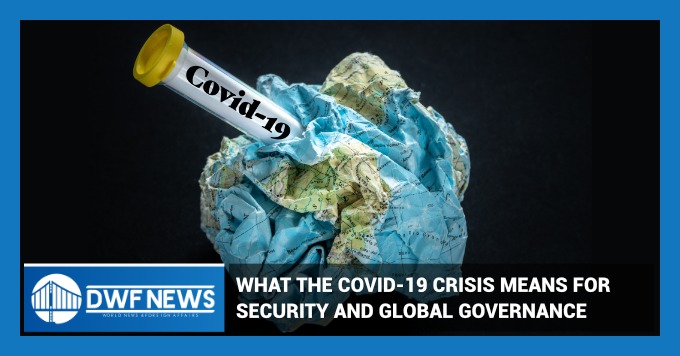the focus would fall back on environmental and climate change when a disaster strikes, only to be forgotten once the situation normalizes
Written By Dr. Dhanasree Jayaram
Assistant Professor | Dept. of Geopolitics & IR
May 13, 2020
Article originally published by Indrastra
The novel coronavirus disease outbreak across the world has presented before us with an unprecedented situation. It has not only shook the foundations of various systems and structures that we believed to be (more or less) stable (including economic and political systems) but also opened up new opportunities for breaking several disciplinary shackles in academia. Now, more than any other time, the academic community needs to reflect on well-established norms in research that have dictated research and development for a long period of time.
The climate and environmental crisis significantly influenced a shift in this field, but the movement kept losing steam every now and then; and the focus would fall back on environmental and climate change when a disaster strikes, only to be forgotten once the situation normalizes. The unfolding and fallouts of the novel coronavirus disease outbreak are here to stay for some time (not certain for how long) and for us to outlive them, the international system requires a major overhaul. What we could not learn from the environmental crisis, the health (pandemic) crisis that we are in could set in motion, triggering a better understanding of ‘security’ and ‘global governance’
The politics of ‘security’
The call for integrating social, economic, environmental, health and other variables into the security discourse and practice is not new. Even before the end of the Cold War, these voices existed but were far and few between. However, the post-Cold War context provided a fillip to the human security discourse, especially after the United Nations (UN) also recognized this concept and approach (in 1994) to shift the focus from territories and arms to people and development. As noted by the UN, “the human security approach is a proven analytical and planning framework that supports more comprehensive and preventive responses by the United Nations, cutting across sectors, developing contextually relevant solutions, and adopting partnerships to help realize a world free from fear, want and indignity.”
However, these acknowledgments have not translated into effective policy responses and a change in our approach towards national security. A recent article clinically spells out the lop-sidedness in how we define security threats, even contextually, as he describes in the case of the deadly 2019-2020 fires in Australia that killed people and scores of species as well as damaged infrastructure and destroyed huge swathes of land. According to him, “our most urgent sources of insecurity” are being overlooked in favor of imaginary threats, defined through “foreign powers and cold wars” in the Australian context . . .
What is World Federalism?
World Federal Government (WFG)
Original Publisher
IndraStra GlobalDr. Dhanasree Jayaram is Assistant Professor, Department of Geopolitics and International Relations, and Co-Coordinator, Centre for Climate Studies, Manipal Academy of Higher Education (MAHE), Karnataka, India. She is also Research Fellow, Earth System Governance Project, and the author of Breaking out of the Green House: Indian Leadership in Times of Environmental Change (2012).
She can be reached at dhanasree.j@manipal.edu or @dhanasreej (Twitter)
Related Articles
ARTICLES FOR THIS ISSUE: May 2, 2024
Dirty trick to help Israel continue genocide? US to Spend $350 Million Constructing Gaza Pier Dave DeCamp Antiwar.com Why They Hate Us: Decent Jews Against Occultist Khazarian Kid Killers Alan Wagman Common Dreams Student protests show conscience still counts...
ARTICLES FOR THIS ISSUE: DWF NEWS APRIL 18, 2024
Israel's sickening history of crimes against humanity Dead on Arrival: Israel's Blowback Genocide Ellen Cantarow Iran puts Israel on notice The Missiles of April Scott Ritter U.S. Government Bullies Weak Nations Eric Zuesse Does Project 2025 suggest a 'Taliban...
Articles for This Issue: DWF NEWS April 4, 2024
Israel's Meddling in US Politics Is Aggressive & Unceasing Branko Marcetic Germany's economy sucker punched by U.S. The Stupidity and Vileness of the U.S. Empire's Leaders Eric Zuesse The Rapture, Armageddon, & the Second Coming No topic in...
Solving Global Problems
We can work together to make the world better

